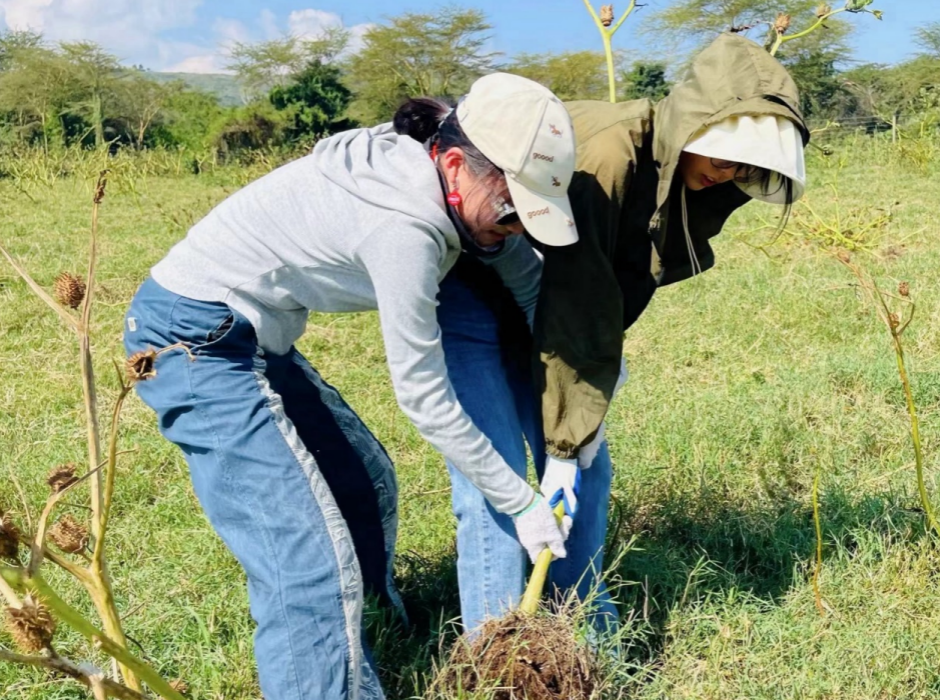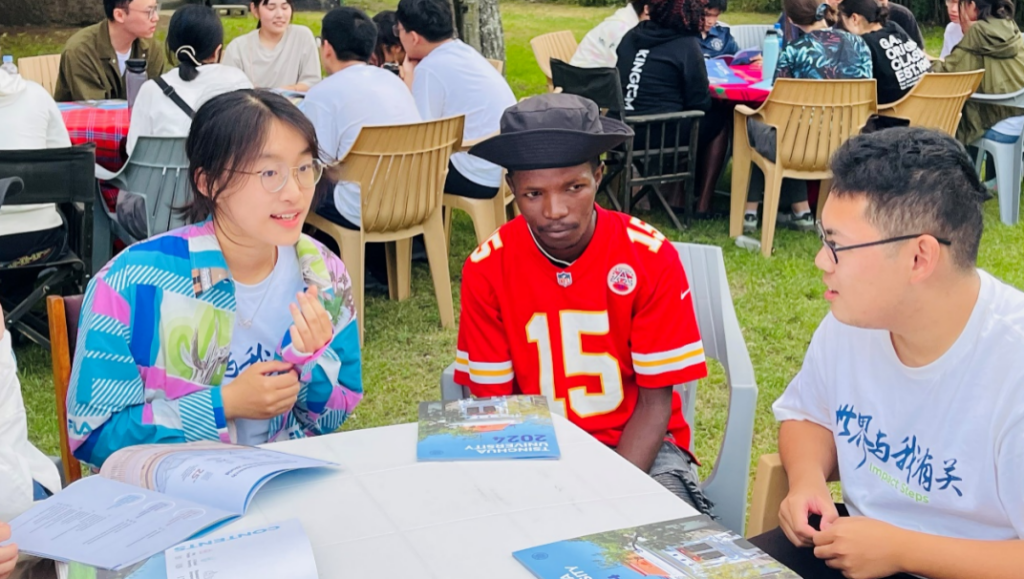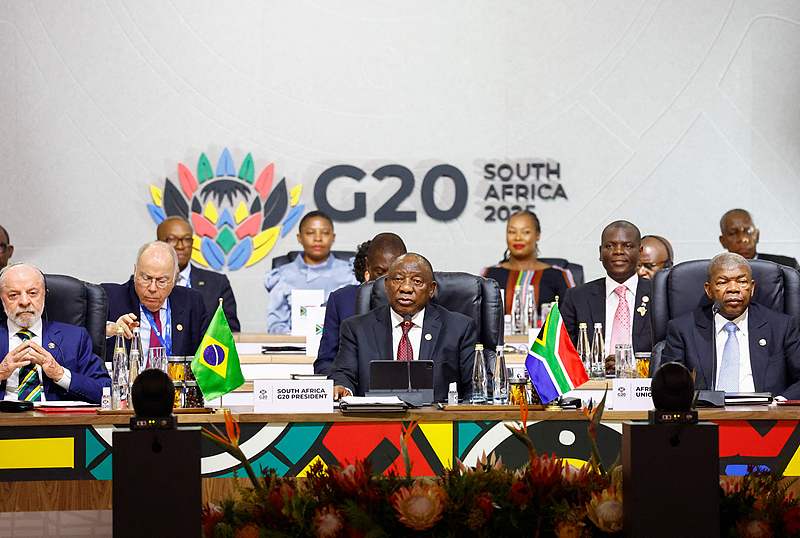
Chinese students join peers in Kenya for conservation initiatives
Ahead of the 2024 Forum on China-Africa Cooperation (FOCAC) Summit in Beijing, China, a delegation from Tsinghua University visited Kenya in August for a collaborative project on environmental and animal conservation.
The two-week initiative was part of an overseas social practice undertaken by the Chinese students, who aimed to contribute to the implementation of the Sustainable Development Goals by safeguarding the unique Kenyan ecosystem.
As part of the project, the Chinese students, joined by Kenyan peers, embarked on a weeding drive to eliminate harmful plants from farms, thereby improving soil conditions that enable beneficial plants to thrive.
Some of the weeds that were eliminated include the datura stramonium, which contains dangerous chemicals such as atropine, hyoscyamine, and scopolamine.
The joint group also embarked on an initiative to observe wildlife at the Soysambu Conservancy, hosting various wild animals.

Working together, the Chinese and Kenyan peers demonstrated the potential that lies in global collaborations, an aspect that has been enriched in the more than six decades of diplomatic relations between China and Kenya.
“Despite our diverse cultural backgrounds, we are united by our shared love for Earth and our commitment to environmental conservation,” said Mu Ruiying, a student from Tsinghua University.
Ruiying’s remarks echo the theme of FOCAC 2024; “Joining Hands to Advance Modernization and Build a High-Level China-Africa Community with a Shared Future”.
Scheduled to be held from September 4 to 6, the summit has attracted multiple African leaders to Beijing as the continent seeks to strengthen bilateral ties with China.
As the leaders embark on the Summit as well as sidebar discussions, Ruiying is confident youth from both sides have a role to play in enabling even stronger bilateral cooperation.
“As millennials who have grown alongside the development of FOCAC, we bear the responsibility of deepening China-Africa friendship and mutual development,” she said.
“In the future, as Tsinghua students and global citizens of the 21st century, we are committed to advancing the Global Development Initiative through tangible actions, channeling our youthful energy into contributing to global progress,” she added.






